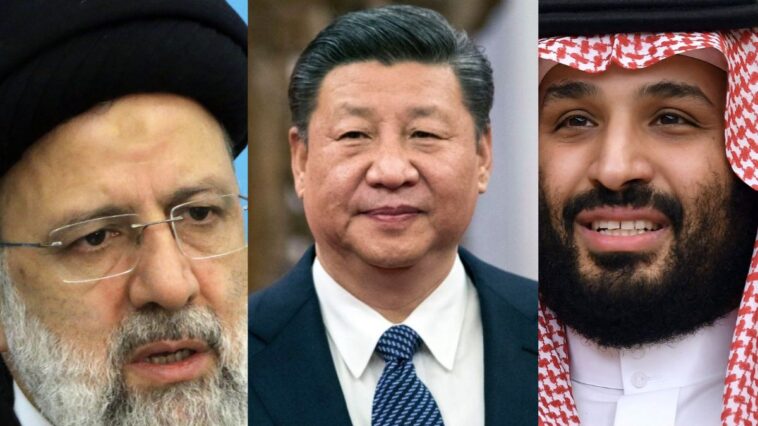Tehran: Regional rivals Iran and Saudi Arabia agreed on Friday, seven years after relations were severed, to restore ties and reopen diplomatic missions, according to a joint statement.
This action is the culmination of a larger realignment and efforts to reduce tensions in the Middle East.
Riyadh severed ties with Tehran in 2016 after Iranian demonstrators attacked Saudi diplomatic missions in the Islamic Republic in response to the execution of revered Shia cleric Nimr al-Nimr.
Shiite-majority Iran and Sunni Muslim Saudi Arabia support opposing parties in several Middle Eastern conflict zones, including Yemen, where Tehran supports the Huthi insurgents and Riyadh leads a military coalition supporting the government.
The Islamic Republic of Iran and the Kingdom of Saudi Arabia have agreed to resume diplomatic relations and reopen embassies and missions within two months, according to a joint statement cited by Iran’s state news agency IRNA.
The official Saudi Press Agency also published the statement, which stated that five days of discussions were held in Beijing prior to the announcement.
IRNA reported that Ali Shamkhani, secretary of Iran’s Supreme National Security Council, had travelled to Beijing on Monday for “intensive negotiations with his Saudi counterpart in China to ultimately resolve the issues between Tehran and Riyadh.”
Since April 2021, Iraq, a neighbour to both nations, has hosted multiple sessions of discussions between Iran and Saudi Arabia.
Officials from security and intelligence participated in these encounters at a relatively low level.
In July, Iran’s Foreign Minister Hossein Amir-Abdollahian stated that the two countries were prepared to advance their political and public discussions.
Since April of last year, however, no negotiations had been announced publicly.
Mending bonds
Iran and Saudi Arabia thanked the Republic of Iraq and Sultanate of Oman for hosting the 2021 and 2022 talks between the two countries, as well as the leaders and government of the People’s Republic of China for hosting and supporting the talks held in that country.
They stated, “The three countries expressed their eagerness to make every effort to advance regional and international peace and security.”
Following the 2016 incident, other Gulf states also reduced their ties with Iran.
But in September, after a six-year absence, Teheran welcomed back an Emirati ambassador. Iran announced one month earlier that Kuwait had sent its first ambassador to Iran since 2016
In June of 2017, Saudi Arabia and its allies the United Arab Emirates, Bahrain, and Egypt severed ties with Qatar.
Doha denied the allegations that it supported extremists and was too close to Tehran.
These connections were repaired in January 2021.
Amir-Abdollahian was in Damascus on Thursday, where he welcomed Arab outreach to Syria’s internationally isolated government following last month’s earthquake in Turkey and the war-torn country.
Also read: China actively seeks access to American military technology: US
He added that Tehran, which has supported Damascus throughout the conflict’s twelve-year duration, would join efforts to reconcile Syria and Turkey, which has long supported opposition groups opposed to President Bashar al-Assad.
Moreover, relations between Riyadh and Ankara have improved since the murder of Saudi journalist and government critic Jamal Khashoggi in the kingdom’s Istanbul consulate in 2018.
Analysts characterise Turkish President Recep Tayyip Erdogan’s efforts to revive bilateral relations as primarily motivated by economic considerations.




